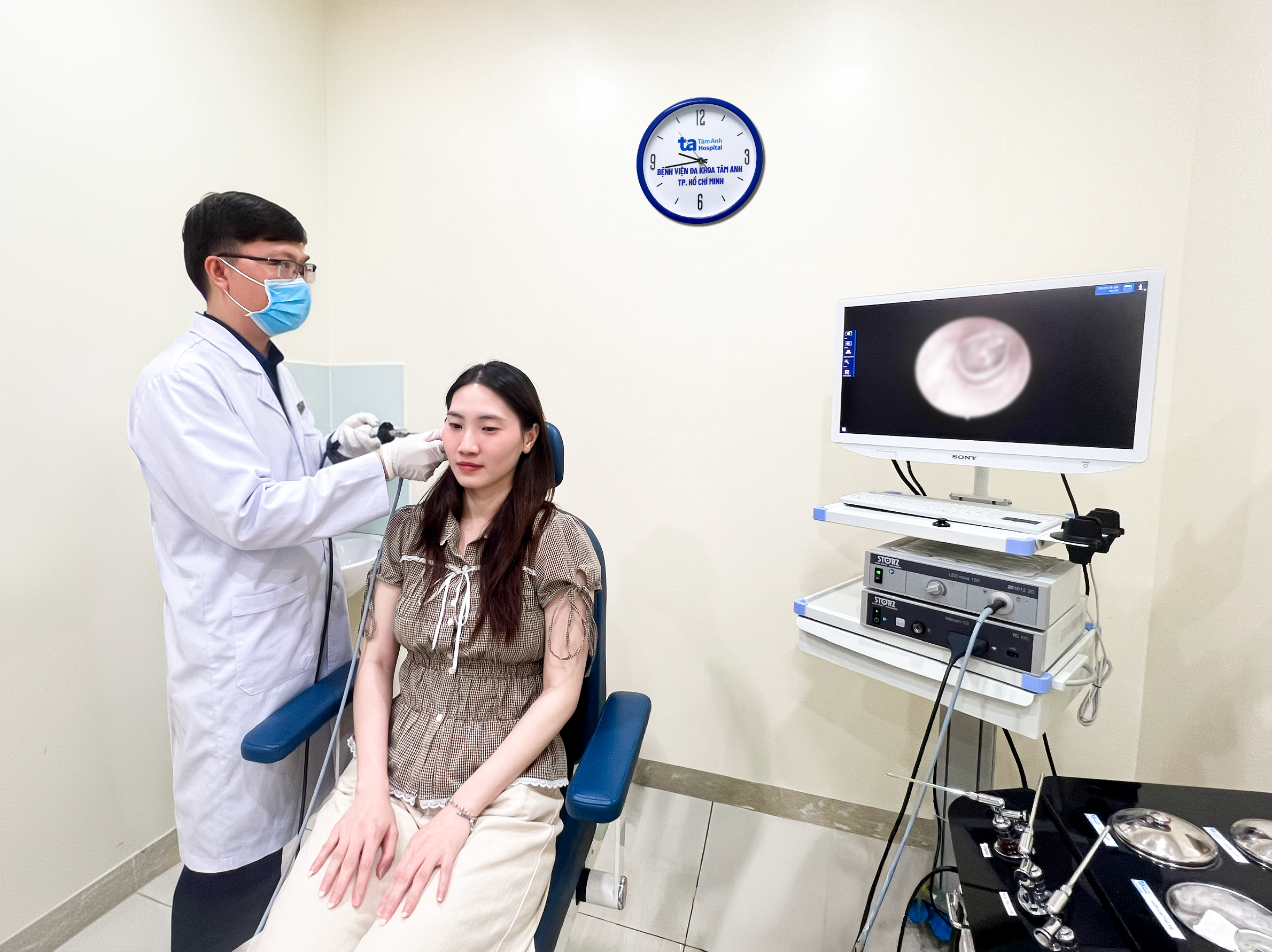Answer:
The ear has a complex and sensitive structure. The ear canal is covered by a thin layer of skin, prone to scratches. Lemon juice has a pH of 2-3, making it 10,000 to 100,000 times more acidic than water. This high acidity can burn and damage the lining of the ear canal, worsening the itch. If lemon juice comes into contact with a scratch, it can cause acute external otitis, leading to pain, burning, and swelling. If the eardrum is already damaged, applying lemon juice can cause otitis media, or even necrosis of the tissue in the middle ear and erosion of the eardrum's epithelial layer.
The ear is also closely connected to the sensory nervous system. The auditory nerve originates in the inner ear and passes through structures in the skull to reach the auditory centers in the temporal lobe of the brain. The acid in lemon juice can disrupt signal transmission, affecting hearing.
 |
Doctor Phat examines a patient's ear. Photo: Tam Anh General Clinic, District 7. * |
A balanced microbiome in the ear plays a vital role in protecting it from harmful bacteria. Introducing the strong acidity of lemon juice can disrupt this balance, creating an environment for bacteria and fungi to thrive. Using lemon juice incorrectly not only fails to alleviate symptoms but can also lead to dangerous complications.
You should consult an ear, nose, and throat (ENT) specialist to determine the cause of the itching. Possible causes include earwax buildup, water trapped after bathing, external otitis, or a fungal ear infection. Based on the diagnosis, the doctor will recommend appropriate treatment. Avoid cleaning your ears with sharp objects, cotton swabs, or putting lemon juice, balm, or alcohol in your ears.
MSc, MD Truong Tan Phat
Head of ENT Unit
Tam Anh General Clinic, District 7
| Readers can submit questions about ear, nose, and throat conditions here for doctors to answer. |












